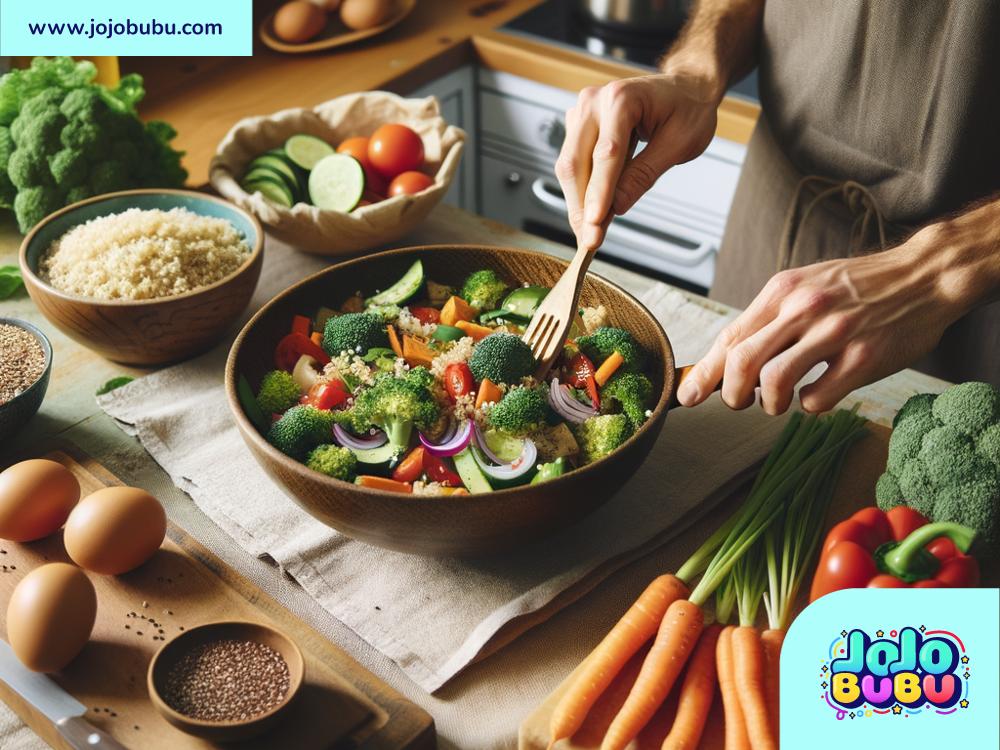Cooking Healthy Meals Alone: Tips for Eating Well When You’re Solo
Cooking for yourself can seem boring or like too much work, especially when you're alone. Why bother cooking a nice meal when you can just grab takeout or snack on chips, right? It might seem easier, but your body deserves better. Eating healthy doesn’t have to be difficult or expensive, even when you’re only cooking for one. In fact, it can be fun and rewarding! Here’s a guide to help you cook healthy meals when you’re alone.
Why Cooking Alone Is Important
When you cook for yourself, you’re in control of what goes into your food. You can pick fresh vegetables, use less salt, and avoid unhealthy oils. Ordering food or eating packaged meals might save time, but they often come with hidden sugars, fats, and chemicals. By cooking at home, you’re making sure the food you eat helps your body feel good and stay healthy.
Cooking a fresh meal also gives you a sense of accomplishment—not to mention it can be a great way to unwind after a long day. You don’t need a big family event or special occasion to enjoy a hot, satisfying meal. You deserve to treat yourself!
Start Simple
If you don’t cook often, don’t worry—you don’t have to make a three-course meal right away. Start with simple recipes that have just a few ingredients. For example:
- Smoothies: Blend fruits like bananas, berries, and spinach with milk or yogurt for a quick breakfast or snack.
- Salads: Chop up colorful veggies like tomatoes, cucumbers, and carrots. Add some grilled chicken or boiled eggs for protein.
- Stir-Fry: Cook some veggies with olive oil, garlic, and a bit of soy sauce. Add rice or noodles on the side.
Cooking doesn’t have to take hours. Many healthy meals can be made in 20–30 minutes.
Plan Ahead
One of the best ways to stay on track with healthy cooking is to plan ahead. If you shop without a plan, you may end up buying snacks or unhealthy frozen meals. Before you go to the grocery store, write down what meals you want to make for the week. Then, create a list of the ingredients you’ll need.
For example:
- Monday: Grilled salmon with broccoli and sweet potatoes.
- Tuesday: Veggie stir-fry with rice.
- Wednesday: Chicken soup with carrots and onions.
Having a plan makes cooking easier and reduces waste. Plus, when you’ve got everything ready, you won’t be tempted to eat junk food because cooking will feel faster and simpler.
Cook in Bulk
Cooking every single day can feel exhausting, especially if you’re busy. That’s why cooking in bulk is such a lifesaver! When you make a meal, cook extra so you can save the leftovers. Store them in containers and keep them in the fridge or freezer. This way, you have healthy meals ready to eat whenever you're too tired to cook.
For example:
- Make a big pot of soup or chili and divide it into portions.
- Cook a large batch of rice or quinoa to use throughout the week.
- Roast a pan of vegetables and pair them with different proteins (like chicken or tofu) on different nights.
Bulk cooking will save you time and money, and it’s perfect for solo eaters!
Experiment and Have Fun
Cooking alone gives you the freedom to experiment with flavors and ingredients. You don’t have to worry about what others think—this is your time to try something new! Add spices to make your meals more exciting, like paprika, turmeric, or garlic powder. Try foods you’ve never cooked before, like a new type of cheese, a veggie you’ve never eaten, or even tofu.
If the recipe doesn’t turn out perfectly, don’t be hard on yourself—it’s a learning process. The more you practice, the better you’ll get.
Make It Special
Eating alone doesn’t have to feel lonely or rushed. Turn mealtime into a special moment for yourself. Use a nice plate instead of eating straight out of the container. Sit at the dining table instead of eating in front of the TV. Maybe light a candle or play your favorite music in the background. Treat yourself the same way you’d treat guests at a dinner party. You deserve to enjoy your food in a relaxing environment.
Affordable and Healthy Food Ideas
Eating healthy doesn’t have to be expensive. Look for seasonal produce—it’s often cheaper and fresher. For proteins, eggs, beans, and canned fish like tuna are budget-friendly options. Buy ingredients in bulk, like rice, oats, and lentils, since they last a long time. Freeze things like bread, vegetables, or meat to make them last longer and avoid waste.
Final Thoughts
Cooking healthy meals for one may seem like extra effort, but it’s an investment in your health and happiness. By learning to love the process and planning ahead, you can enjoy delicious, nutritious food that makes you feel good inside and out. Start small and celebrate each success—whether it’s mastering a tricky recipe or simply enjoying a colorful plate of veggies.
Remember, cooking healthy meals is an act of self-care. You’re worth the time and effort—and your body will thank you with energy, strength, and a happier mood. So, grab your apron and start cooking!

